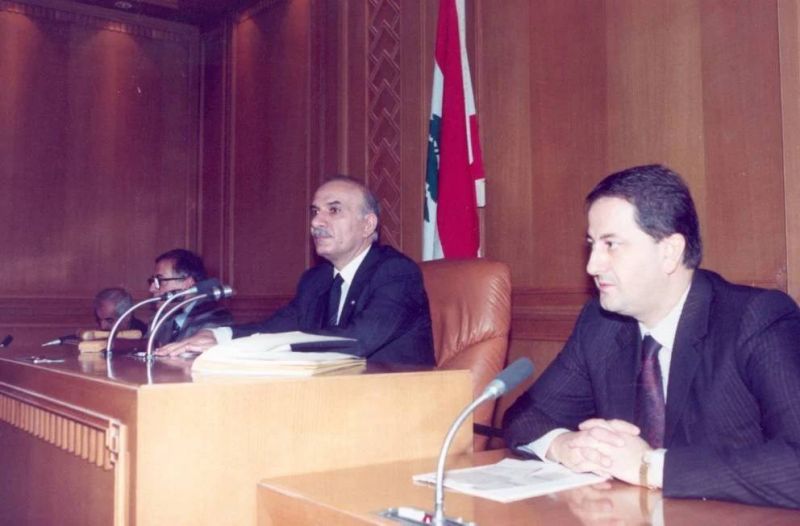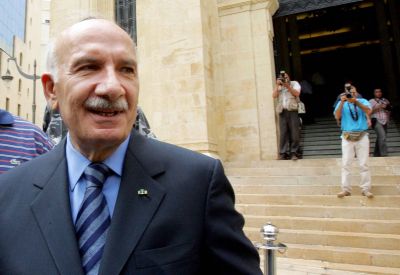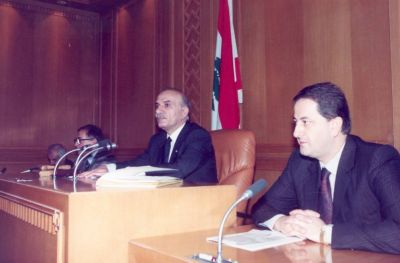
Hussein Husseini presiding over a session of the House in 1991. (Credit: ©Archives/OLJ)
Former Parliament Speaker Hussein Husseini died Wednesday at the age of 85. He had a strong impact on Lebanese political life during a critical time period ranging from the 1970s to the 1990s.
Along with Imam Moussa Sadr — the Shiite community leader who disappeared in Libya in 1978 — Husseini co-founded the "Movement of the Deprived," later known as the Amal Movement. He was originally from Shmestar, a large Shiite community in the region of Baalbeck, located on the arid, eastern side of Mount Lebanon.
A somewhat atypical figure, Husseini embodied a synthesis between his role within an important local family and his promotion of the cause of the "deprived," which Amal aimed to represent. This allowed him to escape the social revolution that shook the Shiite community in the 1980s and led to the end of the domination of the old feudal class.
Husseini first served as president of the municipal council of Shmestar but was elected to Parliament in 1972, where he quickly became a tenor of parliamentary life.
In 1978, he was appointed Secretary General of the Amal Movement where he fought against the party's slippage into infighting. Feeling this struggle was doomed to fail, Husseini resigned in June 1980, paving the way for his rival, Nabih Berri, to head the formation.
Four years later, Husseini was chosen to succeed Kamel al-Assaad as Speaker of Parliament. The latter embodied the old order rejected by the new Shiite political elite. Kamel al-Assaad was especially opposed by Syria which, from 1984 onwards, returned in force to the Lebanese scene.
Pragmatically, then-president Amine Gemayel — who had a large bloc of deputies loyal to him in Parliament — decided to abandon Kamel al-Assaad in favor of Hussein Husseini, a moderate personality who was acceptable to Syria.
It is in this double capacity that Husseini would later play a key role in the conclusion of the Taif Agreement, which officially put an end to the Lebanese Civil War in 1989. Alongside the Maronite Patriarch Nasrallah Sfeir, Husseini is considered the godfather of this agreement, with Sunni billionaire and future prime minister Rafic Hariri in the background.
Husseini himself recorded the minutes of the negotiations that led to the so-called "National Understanding Document," which he jealously guarded.
Husseini remained in office until the 1992 legislative elections. That year, he was more or less dropped by the Syrians in favor Nabih Berri. The latter succeeded him as Speaker of Parliament, but Husseini continued to be elected as MP of his Baalbeck constituency, alongside candidates from Amal and Hezbollah.
For more than ten years, Husseini embodied a measured opposition to Hariri's policies, but never managed to take a clear stand on the major national issues that dominated the 2000s onwards, including the fight against Syrian tutelage and the status of Hezbollah.
In 2008, this staunch defender of parliamentary democracy resigned from his MP post in protest against procedures that flouted the Constitution.

